Summary: To get a VA loan, active-duty military members typically have to serve at least 90 consecutive days. National Guard and Reserve members usually need six years of service unless they’ve completed active-duty service lasting 90 days or more.
“How long do I have to serve in the military to qualify for a VA home loan? What’s the minimum length of service needed to get a VA loan for service members?”
These are two of the most common questions about VA-guaranteed mortgage loans, and it’s easy to understand why. The eligibility requirements can be complicated for someone unfamiliar with the program.
So, let’s see if we can simplify things a bit.
How Long You Have to Serve to Get a VA Loan
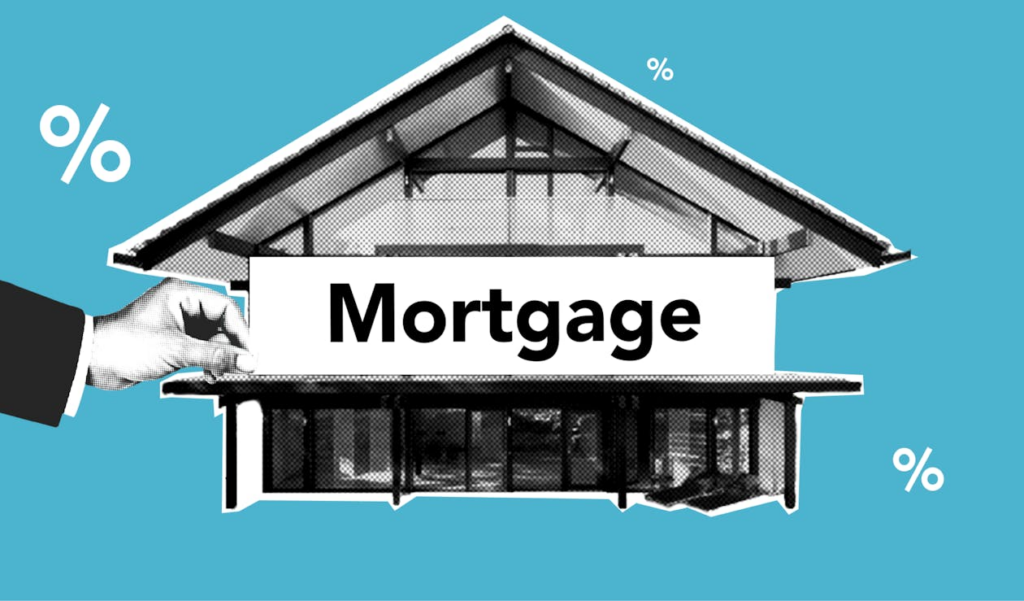
As mentioned above, active-duty military members typically qualify for VA mortgage financing after 90 days of continuous service. National Guard and Reserve members typically qualify after six years of regular service or after 90 days of “non-training active-duty service.”
These guidelines come from the U.S. Department of Veterans Affairs.
This VA loan program imposes other qualification criteria as well as the length of service. You must obtain a Certificate of Eligibility and other paperwork to apply. Nevertheless, the rest of this article will focus on how long you have to serve in the military for a VA loan.
Active-Duty Military
The time-in-service requirements for active-duty military members are the most straightforward and easy to understand. If you have served in the active-duty military for at least 90 continuous days, you’ve likely served long enough to get a VA loan.
Active-duty military members also have the benefit of working with their personnel office or adjutant to determine eligibility and obtain the necessary paperwork. That steady paycheck can help them qualify for mortgage financing.
If you’re currently on active duty, you don’t need to serve for very long to get a VA loan. Ninety continuous days without a break in service is usually enough to check the box.
National Guard
Let’s move on to the National Guard. How long must National Guard members serve to get VA home loan benefits?
The rules here are a bit more complicated. But don’t worry. We’ll break it down line by line to make it easier to understand.
When it comes to qualifying for a VA loan, there are basically two different groups of National Guard members:
1. Served between August 1990 and the present
If you served in the National Guard between August 2, 1990, and the present, you could be eligible for a VA home loan post serving for at least 90 days of active duty. The Department of Veterans Affairs refers to this timeframe as the “Gulf War period to the present.”
2. Served during any other time period
If you were in the National Guard for any other timeframe, like before the date range mentioned above, you could qualify for a VA home loan or VA construction loan if:
- You served for 90 days or more of non-training active-duty service, or…
- You served 90 days or more of active-duty service, including at least 30 consecutive days, or…
- You completed six years in the National Guard with an honorable discharge or being placed on the retired list.
Reserve Members
Moving on to the Reserves. How long do you have to serve as a Reserve military member to get a VA loan?
The rules here are similar to those of the National Guard in the sense that there are two categories determined by the timeframe when you served. But the specifics are a little different for the second group, so let’s break them down one at a time.
1. Served between August 1990 and the present
If you served for at least 90 days of active duty in Reserve military, you meet the minimum service requirement.
2. Served during any other time period
You can meet the minimum active-duty service requirement if you served for:
- 90 days or more of non-training active-duty service or
- Six creditable years in the Selected Reserve
Also, at least one of the following conditions ought to be true:
- You were discharged honorably from the military or
- You were placed on the military retired list, or
- You were transferred to the Standby Reserve Military or an element of the Ready Reserve other than the Selected Reserve after your service characterized as honorable or
- You continue to serve in the Selected Reserve force.
We adapted this information from the U.S. Department of Veterans Affairs website, rearranging it to make it easier to understand. To learn more about these requirements, including how long you need to serve in the military, refer to the VA.gov website or see the resources listed below.
Other VA Home Loan Eligibility Requirements

The VA–backed home loan program stands as a cornerstone of support for those who have served in the United States military and their families, offering a pathway to homeownership with favorable terms and benefits.
To access this program, meeting specific eligibility criteria defined by the U.S. Department of Veterans Affairs (VA) is crucial. Here’s a comprehensive overview of the other VA home loan eligibility requirements:
1. Creditworthiness
While the VA itself does not stipulate a minimum credit score requirement, lenders who facilitate VA home loans have their own credit standards.
A favorable credit history enhances your eligibility for securing a VA loan. Lenders assess your creditworthiness based on numerous factors, including your credit score, payment history, and outstanding debts.
While a perfect credit score is not necessary, demonstrating responsible financial behavior enhances your chances of loan approval. Furthermore, the VA loan program often provides more flexibility for individuals with less-than-ideal credit scores compared to conventional loan programs.
2. Income and Employment Stability
Your income and employment stability are critical factors in governing your eligibility for VA home loan income requirements.
Lenders evaluate your income to make sure you have the financial capacity to repay the VA loan. A stable employment history and sufficient income levels indicate your ability to meet ongoing mortgage obligations.
Lenders also calculate your debt-to-income ratio, comparing your monthly debt payments to gross monthly income. A lower debt-to-income ratio strengthens your eligibility, demonstrating that you have adequate financial resources to manage additional debt responsibly.
3. Property Requirements
The property you intend to purchase using a VA home loan must meet certain criteria established by the VA. These Minimum Property Requirements (MPRs) ensure that the property is safe, sanitary, and structurally sound for habitation.
Additionally, the property must serve as your primary residence, distinguishing VA loans from investment property or vacation home financing options. Ensuring that the property meets these requirements is essential for securing VA loan approval.
4. Certificate of Eligibility (COE)
Before applying for a VA home loan, you must acquire a Certificate of Eligibility from the VA. The COE verifies your military service and other eligibility criteria, serving as evidence of your qualification for a VA home loan.
You can apply for a COE via the VA’s eBenefits portal or by submitting a paper application through a VA-approved lender. Obtaining a COE is a crucial step in the VA loan application process, as lenders require this document to initiate loan approval procedures.
5. Usage Limitations

While the VA home loan program offers valuable benefits, there may be limitations on the number of times you can utilize your VA loan entitlement.
However, under certain circumstances, such as selling a property purchased with a VA loan and paying off the loan in full, you may be eligible to restore your entitlement and reuse your VA loan benefit.
Understanding these usage limitations is essential for planning your long-term homeownership goals and leveraging your VA loan benefits effectively.
6. Loan Limits
The VA imposes limits on the amount of the loan that it will guarantee, known as VA loan limits. These limits differ by county and are based on the conforming loan limits defined by the Federal Housing Finance Agency (FHFA).
Exceeding these limits may require a down payment or additional financing options to cover the difference. Familiarizing yourself with the loan limits applicable to your desired property location helps ensure a smooth loan application process.
7. Funding Fee
A funding fee may be required for VA loans, with few exemptions available. The funding fee serves to offset the cost of the VA loan program and contributes to its sustainability.
The amount of the funding fee differs based on various factors like your military category, down payment amount, and whether you have previously utilized your VA loan benefit.
Understanding the funding fee structure and its implications for your loan helps you anticipate the overall cost of borrowing and make informed decisions.
How and Where to Learn More
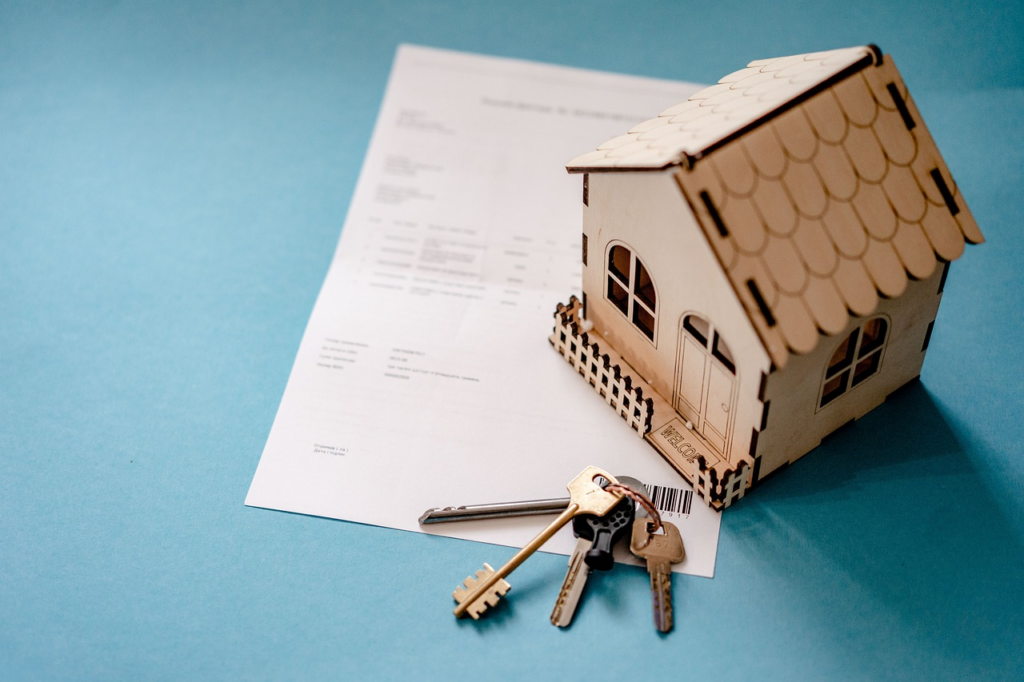
If you have questions about the service requirements or other eligibility criteria for VA loans, the Department of Veterans Affairs encourages you to call the regional loan center at 877-827-3702 (TTY: 711). They’re typically available Monday through Friday, 8 a.m. to 6 p.m. EST.
The regional loan center can answer other questions you have about VA home loans as well, in addition to the length of service requirements.
You can also refer your questions to an approved mortgage broker or loan officer. They can help you determine whether or not you are eligible for a VA loan based on how long you have served in the military. An approved lender can also help you obtain your Certificate of Eligibility.

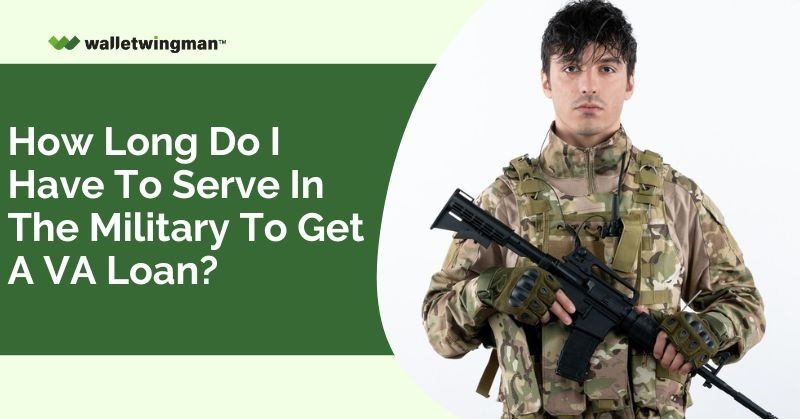
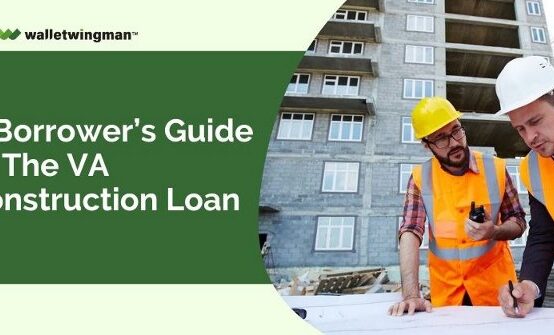 A Borrower’s Guide to the VA Construction Loan
A Borrower’s Guide to the VA Construction Loan  How Much Can I Borrow When Using a VA Loan to Buy a House?
How Much Can I Borrow When Using a VA Loan to Buy a House? 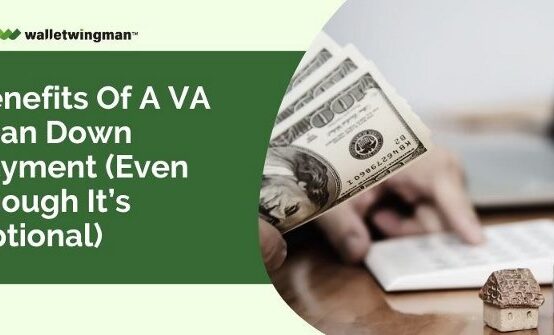 Benefits of Making a VA Loan Down Payment (Even When It’s Optional)
Benefits of Making a VA Loan Down Payment (Even When It’s Optional) 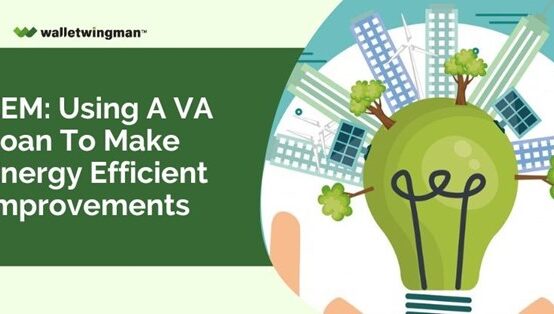 EEM: Using a VA Loan to Make Energy Efficient Improvements
EEM: Using a VA Loan to Make Energy Efficient Improvements  Why San Antonio, Texas Is The VA Loan Capital Of The U.S.
Why San Antonio, Texas Is The VA Loan Capital Of The U.S. 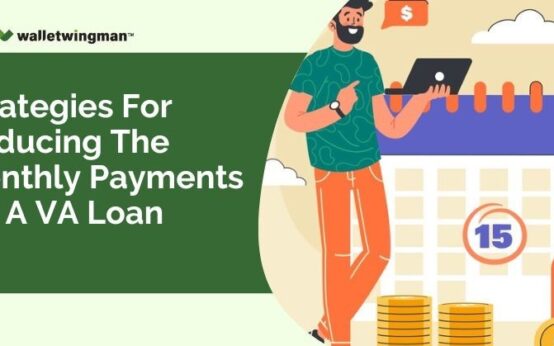 Strategies for Reducing the Monthly Payments on a VA Loan
Strategies for Reducing the Monthly Payments on a VA Loan 